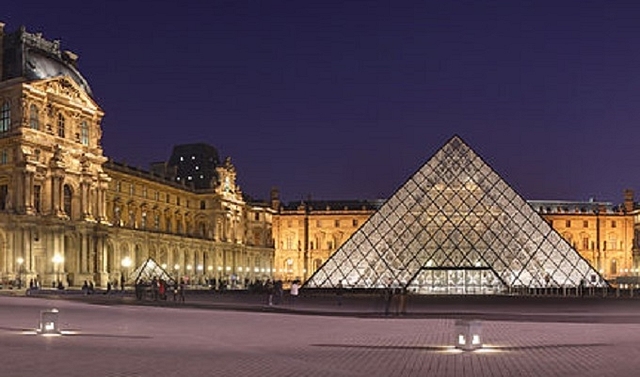
France: At The Turns Of History
Six books which describe, and imagine, France at critical points in history and future.
The idea of Paris is what generations of writers and thinkers have made of it.“Parisian life is bursting with wonderful, poetic subjects,” the poet Baudelaire had said, invoking, even today, images of languorous boat rides and sunny cafes. But Paris, and France, has too often been on the cusp of momentous events in history as well. A look at some of the books that address living through the critical junctures:
1) The Gods Will Have Blood by Anatole France
The story of the young revolutionary artist Evariste Gamelin takes one back to the bloody aftermath of the French Revolution, the violence of the years of the Reign of Terror and the ever pertinent question about the best way to negotiate between idealism and fanaticism. Published in 1912, it is regarded as among the greatest of French novels. Evariste is appointed magistrate and sits on judgment on people from across a wide cross section of society: from aristocrats accused of destroying grains to prostitutes, from old men to adolescents. He is not sparing with the guillotine; France tells us that “Evariste was consistent in his decision: death”. The perils of being singularly devoted to the cause are as relevant today as it was in Robespierre’s time.
2) Flight to Arras by Saint-Exupery
The year is 1940, and the writer—also an ace pilot—has been asked to fly a reconnaissance mission over enemy-occupied territory. France has already surrendered and large swathes of its population are on the move, so it’s a mission without a purpose, imbued with the absurd futility that war and life seem consistently capable of throwing up. What the book ends up being is a lyrical, poignant meditation on war and honour, on patriotism and life itself: “If the first act of resistance comes too late, it is doomed to defeat. But it is, nevertheless, the awakening of resistance. Life may grow from it…”
3) The Occupation Trilogy by Patrick Modiano
The 2014 Literature Nobel brought Modiano centre-stage in the English literary universe. People discovered a thorough novelist, seasoned with fame (he had achieved both critical and commercial success in France). Modiano was capable of talking about the burden of Occupation-era France, not with anger and bitterness but invoking its layers of tragedy through lyrical, elegiac sentences. La place de l’étoile, The Night Watch and Ring Roads make up the trilogy, dealing as much with French anti-Semitism as the fluidity of identities in troubled times.
4) Parisians: An Adventure History of Paris by Graham Robb
Published in 2010, Robb’s book (part history, part travel guide) answers that one urge in every history buff: what would it have been like to be a witness to epochal events as they were unfolding? The drama unravels in Paris from around 1750 to the present day, and Robb chooses his protagonists with care: the curious case of Marie-Antoinette getting lost in the (as yet unmarked) streets of (an unmapped) Paris as she tries to flee her fate or the tender-odd eccentricities of Proust against the background of Paris being bombed during World War I as well as the stories of its less famous denizens. The Paris here is dark yet brimming with life, dangerous and alluring, as much frivolity above as swirling undercurrents beneath.
5) Never Any End To Paris by Enrique Vila-Matas
Vila-Matas is Spanish, and his account of the two years he spent in Paris in his early youth sometime in the mid 1970s, trying to become a writer, is as masterful and clever a homage to the city as one can find in contemporary literature. His muse is Hemingway, A Moveable Feast is his lodestar and the Paris of charged literary currents is his playground. So his story weaves in and out of Parisian cafes and writer’s garrets, while some of the leading intellectual luminaries of the age fleet past, from Roland Barthes to Marguerite Duras to Goerges Perec. Written in the form of lectures delivered by the novelist, Never Any EndTo Paris (published 2003, translated 2011) is not just a celebration of the city but an erudite look at irony and meaning in literature across the ages and how it affects our life and thinking.
6) Submission by Michel Houellebecq
Every time a grisly terror attack comes to haunt Paris, Michel Houellebecq’s provocative worldview becomes the subject of intellectual hand-wringing on chat shows. His latest novel, Submission (2015), is based in the near future, the France of 2022, where an Islamist party—the Muslim Fraternity—allies with mainstream parties eager to keep the Right (Marine Le Pen) out to sweep to power. Islamic law immediately comes into effect, and most intellectuals would rather adjust to the new world order. Accused of Islamophobia and stoking intolerance and hatred, and under round-the-clock police protection since the Charlie Hebdo massacre, it is the passage of time that will determine if Houellebecq was a seer, an alarmist or a little bit of both.